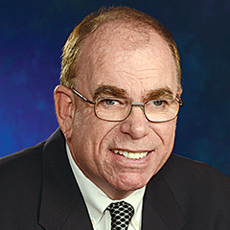
“This is going to be the wave of the future.”
If you happen to be a long-term care operator looking for words to live by, the above sentence is a pretty good choice.
But first some context: They were uttered last week by Vincent Mor, Ph.D. Dr. Mor has spent a good chunk of his adult at Brown University, studying various aspects of our long-term care system. The “This” in his above statement refers to efforts to trim days spent in skilled care.
Dr. Mor uttered them to McKnight’s while reflecting on his latest study, one that should make any operator feel a bit tense and morose.
In a nutshell, his investigation seems to validate a push by insurers offering Medicare Advantage plans to ratchet down post-acute days, often by a week or more (when compared to the more traditional Medicare fee-for-service option). Full findings appear in PLOS Medicine.
To be fair, the study looked only at hip fracture patients. But the implied suggestion is hard to miss: Maybe people spend too much time in nursing homes? The findings will surely provide ammo for insurers who insist stays can be reduced without causing harm.
Ah yes, the old squeeze play. Then again, the squeezing is all too familiar for many operators.
In addition to the benevolent souls who run our largest insurance companies, regulators in Washington are increasingly interested in keeping skilled-care days to an absolute minimum.
In both cases, the bottom line is the bottom line. Or in the case of the Centers for Medicare & Medicaid Services, the lack of one. For as things now stand, Medicare is due to go broke in less than decade. And in case you didn’t notice, the current occupants of the White House and most of Congress are not exactly pushing for more taxes as the answer. Which, of course, leaves trimming revenues. And that’s where skilled care comes in. Or to be more accurate, gets carved out.
Yes, the feds are paying lip service to better outcomes and improved quality. And they’ll be happy to ding you for coming up short on either front. But their real motive is to pare expenses.
Which brings us to their latest tool: anti-fraud efforts. If you seem to be hearing more about crackdowns on wasteful or illegal spending by the healthcare sector lately, it’s no coincidence. Armed with new tools and sharper pencils, federal officials are going after anything that looks off kilter with a frightening focus and unbridled enthusiasm.
At the same time, your downstream colleagues in what used to be called the assisted living sector and is still called home healthcare are more than willing to compete for those same post-acute patients.
And we wonder why there is practically no new construction in the skilled care sector?
John O’Connor is McKnight’s Editorial Director.




